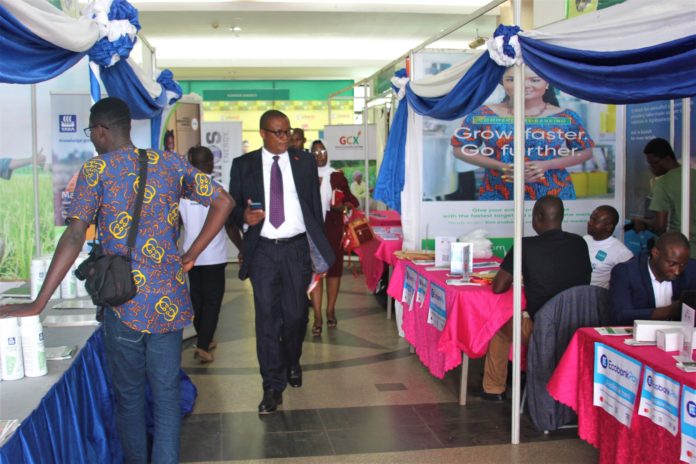The 9th edition of the Pre-Harvest Agribusiness conference and exhibition held at Aliu Mahama sports stadium, Tamale, saw an effective panel discussion session on the hypothetical question: How will Ghana’s Agric sector look in 2023?, What collective roles can stakeholders play to change the face of the Agric sector with focus on Input, Production, Processing, Finance, Branding, Packaging and Market accessibility?
Some of the key panelists present at the session were; the Reginal Director, West Africa for Yara, Executive Director for Peasant Farmers Association and representatives from the Ministry of Food and Agriculture (MoFA), Ecobank, Kosmos Energy and Ghana Commodity Exchange as the moderator.
Madam Victoria Adongo, Executive Director of Peasant Farmers Association surmised that taken a critical look at the sector statistically, it reveals that noting has increased even though there is improvement hypothetically. According to her, 70% of 100% of the national budget allotted for the Agric sector goes into what she terms as “concurrent expenses” which means the humongous monies are spent on administrative works at the expense of operational agricultural activities.
She further noted that if within a span of four (4) years from now we want to see a dramatic change in the sector then the value chain must be “aggressively” looked at by the government and the stakeholders. The private sectors must be strengthened since they are pivotal in holding the sector in high esteem by assiduously helping in terms of value addition, researching, technological assistance…etc which in effect change the sector.
Madam Adongo sedulously commented that by 2023 all the road networks linking agricultural communities should be improved. She said that most of the road networks linking agricultural communities in the Northern sector of Ghana are in a bad condition leading to the high cost of agricultural inputs like fertilizers. She, therefore, appeals to the government to improve these roads for easy accessibility of farm inputs.
The Regional Director, West Africa for Yara international, Danquah Addo-Yobo quizzed the farmers, “must farmers rely solely on stakeholders even if they are not helping”. He furthered to argue that farmers must not always expect to have everything done for them. They ought to help themselves by coming together as smallholder farmers and tackle issues in their capacity.
The astute Director begged to differ a little bit from the normal of pushing every responsibility of making the Agric sector lucrative fully on the shoulders on stakeholders. Perhaps, he wittily alluded to a quote by John F. Kennedy but in his own words–“Ask not what your stakeholders can do for you but what you can do for yourself”. He assured that as Agrochemical Company, Yara would do its best to support the smallholder farmers to improve their yields in the next four years.
A representative from the Ministry of food and Agriculture (MoFA) added her voice by saying that agriculture is no in a subsistence but business now with inconceivable benefits. Thus, it behooves on both stakeholders and farmers to take advantage of government policies and interventions in the sector like fertilizer subsidies, improved seeds and the numerous technological advancements available to help them make handsome rewards from the sector. This she thinks would improve the sector and make it lucrative in the next four years.
Central to the development of the Agric sector is a technology which is an undeniable fact. The use of technology can help farmers in numerous ways. “When the inventory of farmers is well kept with technological tools it will increase their chance of securing financial assistance from the banks” noted by the representative from Ecobank Ghana.
He seized the opportunity to call for a reduction on loan rates by financial institutions especially those assiduously partaking in the game so that peasant farmers can muster the courage to apply for some loans. He believes this would help to develop the sector by 2023.








